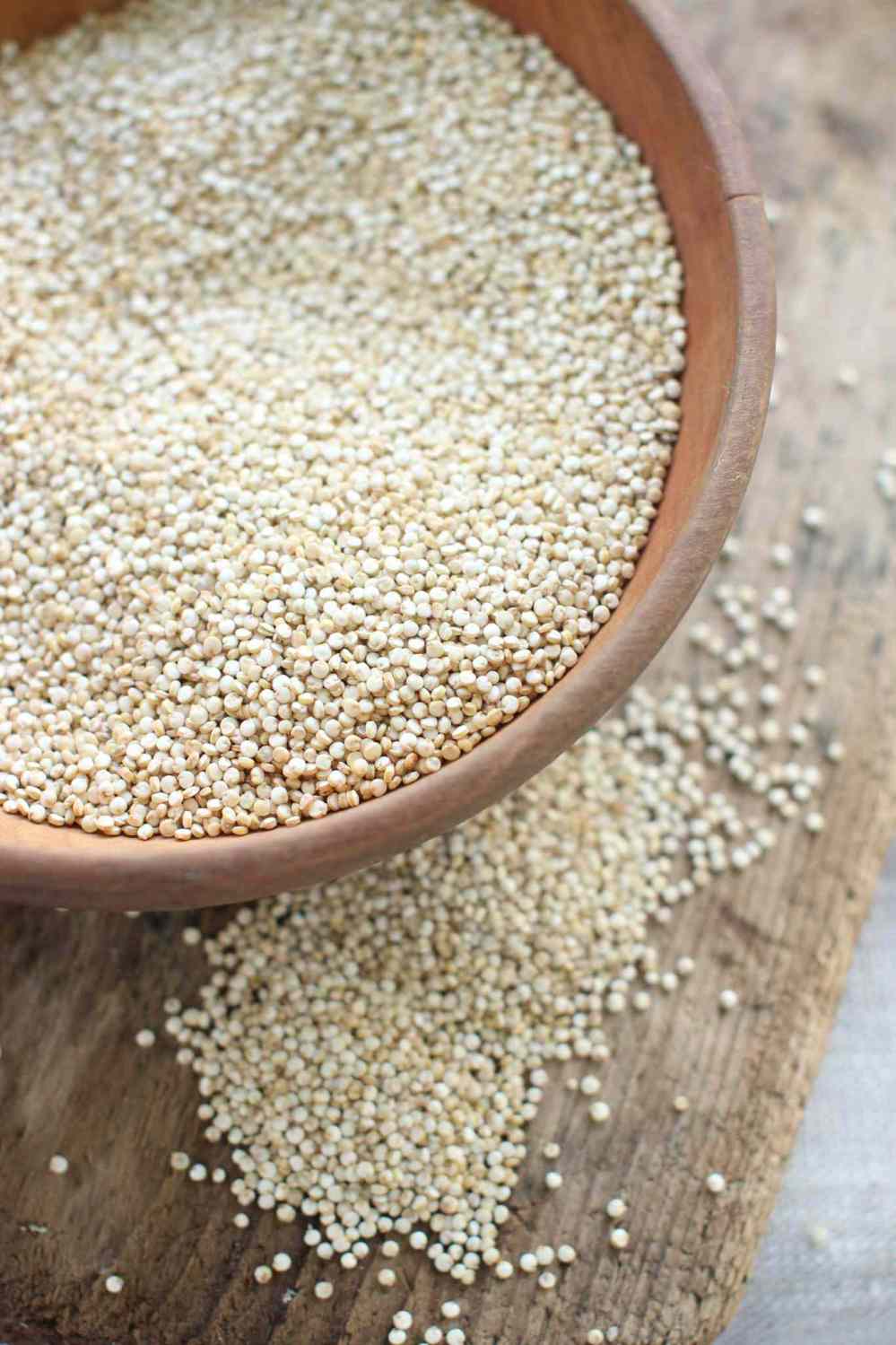Banking on quinoa from seed to sale
Erickson-area farmer wades into niche market
Advertisement
Read this article for free:
or
Already have an account? Log in here »
To continue reading, please subscribe:
Monthly Digital Subscription
$1 per week for 24 weeks*
- Enjoy unlimited reading on winnipegfreepress.com
- Read the E-Edition, our digital replica newspaper
- Access News Break, our award-winning app
- Play interactive puzzles
*Billed as $4.00 plus GST every four weeks. After 24 weeks, price increases to the regular rate of $19.00 plus GST every four weeks. Offer available to new and qualified returning subscribers only. Cancel any time.
Monthly Digital Subscription
$4.75/week*
- Enjoy unlimited reading on winnipegfreepress.com
- Read the E-Edition, our digital replica newspaper
- Access News Break, our award-winning app
- Play interactive puzzles
*Billed as $19 plus GST every four weeks. Cancel any time.
To continue reading, please subscribe:
Add Winnipeg Free Press access to your Brandon Sun subscription for only
$1 for the first 4 weeks*
*$1 will be added to your next bill. After your 4 weeks access is complete your rate will increase by $0.00 a X percent off the regular rate.
Read unlimited articles for free today:
or
Already have an account? Log in here »
Hey there, time traveller!
This article was published 22/08/2015 (3672 days ago), so information in it may no longer be current.
ERICKSON — Standing beside a field of quinoa, Ryan Pengelly asks a neighbouring farmer if he thinks he’s crazy. “You have to start somewhere,”àthe farmer said jokingly from the cab of his diesel pickup.
While not the first to grow quinoa in Manitoba, Pengelly took a big risk seeding the South American crop grown for its edible seeds.
Last year, he planted an acre of quinoa and was able to sell approximately 400 pounds of what he called “dark tan” seeds at farmers’ markets throughout the province. The product retailed for $10 per pound.

“We didn’t make a lot of money, but we paid ourselves enough to keep experimenting,”àhe said.
Pengelly comes by his passion for quinoa honestly. His wife, Alexandra Lozada, is from Lima, Peru, where quinoa fields are as common as canola or wheat on the Prairies.
While living in the South American country, Pengelly saw similarities between the growing conditions in the high altitudes of the Peruvian mountains and the farm he grew up on near Erickson.
Cooler temperatures, a shorter growing season and marginal soil are aspects both areas share in common.
In 2014, Canada imported 3.75 million kilograms of quinoa from Peru, second only to Bolivia with slightly more than four million kg, according to Statistics Canada.
Pengelly hopes to fill some of the demand for the product domestically, and if export numbers are any indication, it’s a burgeoning market. Since 2012, imports of quinoa have almost doubled in just two years from 4.3 million kg imported from approximately 10 countries to more than 8.1 million kg in 2014.
Pengelly — who only recently moved back to farm with his wife and the couple’s two children,Çfour-year-old Tiago and one-year-old Analucia — is part of a growing movement in the food industry in which producers exclusively handle a commodity from seed to sale.
While the farm is a business first, it is guided by an ideology at times at odds with the modern commercial farm.
“It’s about being connected to my home,”àsaid Pengelly, who also owns 300 free-range and pastured chickens. “Iàknow this land and I care about it. Can we make a living taking care of the land? I don’t have an answer for that yet, but we’re going to give it a try.”
The family also owns 10 hogs, that roam paddocks set up in five acres of forest near Pengelly’s father’s homestead.
In many ways, Pengelly is building on the ingenuity of his father, Harvey, who has been farming niche crops in the area since the 1970s.
The farm now consists of two sections of land. It may sound like a good-sized operation; however, the vast majority of it — scattered through the changing elevations near the southeastern border of Riding Mountain National Park — isn’t being farmed.
The elder Pengelly graduated with a science degree, majoring in fisheries and wildlife biology.
He applied the principles he learned at university to the land he bought in 1976. Keeping some of the land in its natural state, where it’s able to sustain diverse ecosystems and retain water, is important to him.
In the early years, he worked with Ducks Unlimited on a few projects before transitioning the farm to the point where it mainly grew alfalfa, native grass and wild sunflower seed.
The sorting machinery used for those seeds has proved valuable for quinoa, allowing the family to sort the seed and deliver a high-quality product to the end consumer.
Harvey said there were a lot of challenges in those early years, with the family relying on his wife Carol’s off-farm income as a pharmacist.
There is a measure of concern in his voice when he speaks of the uncertain waters his son has waded into, including attempting to turn a portion of the farm into certified organic — a trial to see if organic is viable for land that is phosphorous and sulphur deficient.
For younger Pengelly, moving into the organic market isn’t as “rogue”àas it used to be, with new technologies such as rock phosphate on the farming side of things and marketing through the Internet on the sales side.
Furthermore, a new wave of educated consumers is demanding to know where and how their food was produced — and in many cases, willing to pay a premium for the types of practices he is implementing.
“We don’t know exactly how we’re going to do it,” Pengelly said about the transition to organic. “But it’s important to do it for us as a family and Iàthink it’s more important to the consumer, too.”
— Brandon Sun

